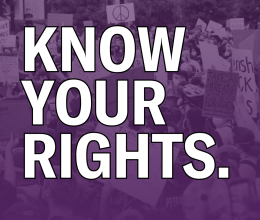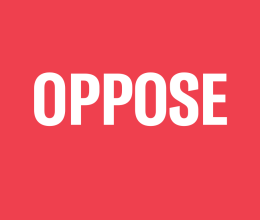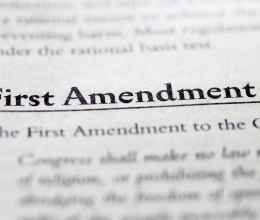This case involves an Asian-American dance rock band from Portland, Oregon, named “The Slants”—a name chosen to “re-appropriate” a term that has been used disparage Asian-Americans. The band applied to register its name as a trademark, and the Patent and Trademark Office (PTO) recognized that the band’s use of the name was intended as a response to racism rather than a racist comment, but nevertheless denied the band’s application for trademark protection under Section 2(a) of the Lanham Act, which prohibits registration of a mark that “may disparage . . . persons, living or dead, institutions, beliefs, or national symbols, or bring them into contempt or disrepute.”
The band appealed to the Federal Circuit, where a three-judge panel upheld the PTO decision, but on its own initiative the full court vacated that decision and voted to rehear the case to determine whether Section 2(a) violates the First Amendment. In June 2015, we filed an amicus brief together with the National ACLU and the ACLU of Oregon. We argued that Section 2(a) violates the First Amendment because it requires discrimination based on the viewpoint expressed by a proposed trademark, and also because it is unworkably vague. Our brief noted that “nearly a century of experience has convinced us that a strong First Amendment is not only compatible with equality but essential to its pursuit, . . . and that efforts to suppress particular viewpoints are often aimed at racial and ethnic minorities.”
The court issued its opinion in December 2015; the majority opinion concurred with our position and held that the First Amendment right to free speech prohibits the government from rejecting trademarks on the basis that they may find it “disparaging.”
The government asked the Supreme Court to review the case, and the Court agreed to do so. We filed an amicus brief, together with five Asian-American organizations, urging the Court to hold Section 2(a) unconstitutional under the First Amendment. In 2017, the Supreme Court unanimously agreed with us that the provision violates the First Amendment and reaffirmed the “bedrock First Amendment principle” that “[s]peech may not be banned on the ground that it expresses ideas that offend.”



